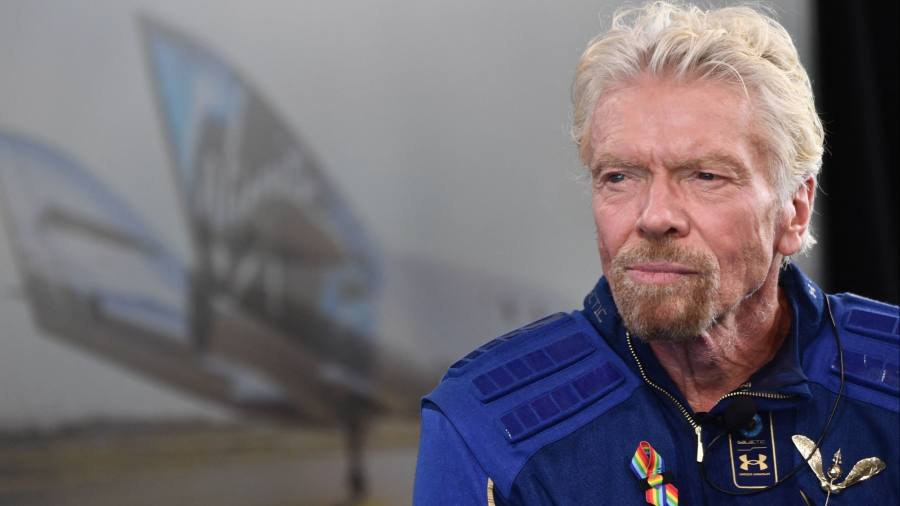Richard Branson’s Virgin Galactic has announced it will finally start commercial space operations later this month, ending a 19-year slog that has been plagued by accidents and technical challenges.
The first commercial flight would take place between June 27 and June 30 and take three members of the Italian Air Force and the National Research Council of Italy to the edge of space to conduct experiments in microgravity, the company said on Thursday. It said the next flight was scheduled for early August, with launches taking place monthly after that.
The planned launch comes two years after Wall Street’s enthusiasm peaked with a race between Virgin Galactic and Jeff Bezos’ Blue Origin to turn space tourism into a commercial reality.
Branson, riding the first Virgin Galactic spaceship to carry a full crew, beat the Amazon founder to space by nine days, but then saw his company take a back seat as regulators probed an anomaly recorded during the flight. The company later said it was putting off further launches to undertake more work to “enhance” its rockets, delaying its next test flight until April.
Blue Origin began commercial flights in 2021 but suspended launches after seven flights last September, when a rocket that was not carrying human passengers malfunctioned, triggering an escape system that caused it to jettison its passenger capsule.
Virgin Galactic has suffered a series of setbacks that have forced long delays. Three employees at a contractor were killed while testing a rocket engine in 2007, and the company suffered a further fatality in 2014, when a pilot died after a spaceship broke apart in mid air.
One of the first companies to go public through a special purpose acquisition company — a type of shell financing vehicle that later became popular with early-stage companies — Virgin Galactic predicted at the time of its listing in 2019 that it would generate revenue of $398mn by 2022 and break into profit, based on earnings before interest, taxes, depreciation and amortisation, in 2021. With its spaceships grounded, it reported revenue of only $2mn last year and a net loss of $505mn.
Its shares had fallen to just over $4 by this week, down from a high of more than $55 when Branson’s personal flight to the edge of space attracted wide publicity.
The Virgin founder’s second space company, Virgin Orbit, filed for bankruptcy protection in April. The satellite launch business collapsed after it failed to reach the frequency of launches it had targeted and could not raise additional capital.
Read the full article here




